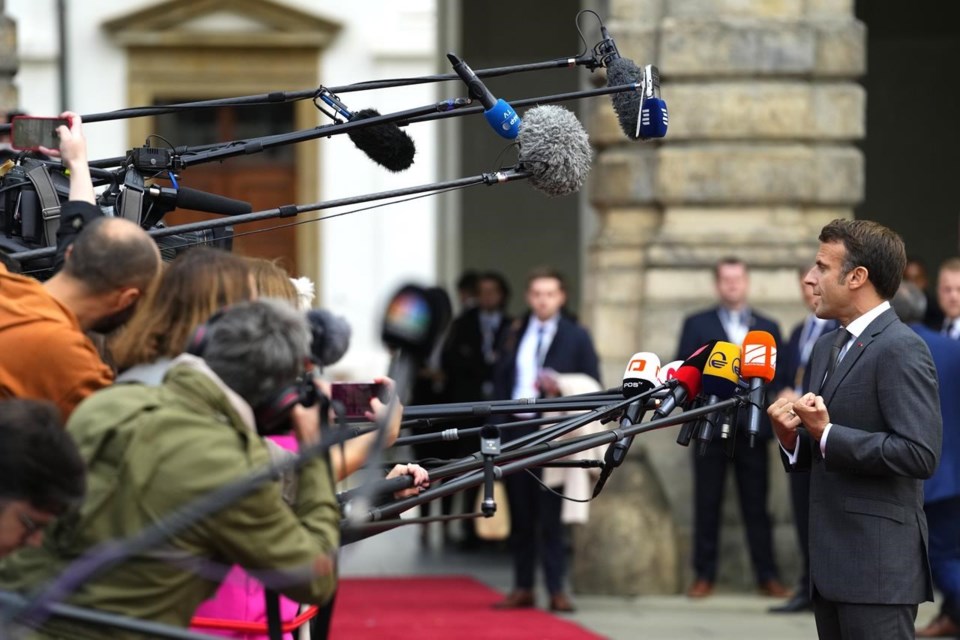PRAGUE (AP) — French President Emmanuel Macron said his government does not support the idea of building a new pipeline to pump natural gas between the Iberian Peninsula and the rest of Europe despite the continent's energy crisis.
During the war in Ukraine, European Union countries have struggled to find common ground on how to wean the bloc off its reliance on Russian gas. Spain is pushing to build another, larger gas pipeline to France, a plan that German Chancellor Olaf Scholz reiterated his support for on Wednesday.
Macron said ahead of a Thursday meeting of European countries in Prague that existing pipelines between Spain and France were only being used at 50% to 60% of their capacity at the moment, and that France was sending more gas to Spain.
“What does Europe need in the coming years? To produce more electricity on its soil and have a renewable and nuclear (energy) strategy,” the French leader said.
The new pipeline would need five to eight years to be built, Macron said, suggesting that France does not want to be importing large quantities of gas in the long term.
“I think our priority is rather to get more electricity interconnection in Europe, so I'm more in favor of these projects,” he said.
In response to Macron's remarks, the Spanish government provided different figures. The Ministry for the Ecological Transition, which handles energy policy, said that since March 1, the pipeline has carried gas from Spain to France 69% of the time.
Spain and Portugal argue that if built, the new Midcat/STEP pipeline would allow them to send on greater quantities of gas that they import in liquid form to the large number of regasification plants on the Iberian coast.
Spain also argues that the pipeline should be designed to carry gas now and green hydrogen in the future, which Prime Minister Pedro Sánchez has argued would make the project viable within the EU’s goal of shifting away from carbon-based fuel.
Sánchez, speaking alongside Scholz on Wednesday, noted that the EU has set goals of increasing the interconnectivity of Europe’s energy infrastructure between member states. Germany heavily relied on Russian energy prior to the invasion of Ukraine and is trying to find other sources while sticking to its climate-protection goals.
The Spanish ecological transition ministry argues that transporting green hydrogen would be “two to four times cheaper and more efficient” than sending electricity along high-tension power lines to France.
Last month, Portugal’s prime minister said European authorities were considering a liquefied natural gas pipeline from Spain to Italy as a way of getting around France’s opposition.
The Associated Press



